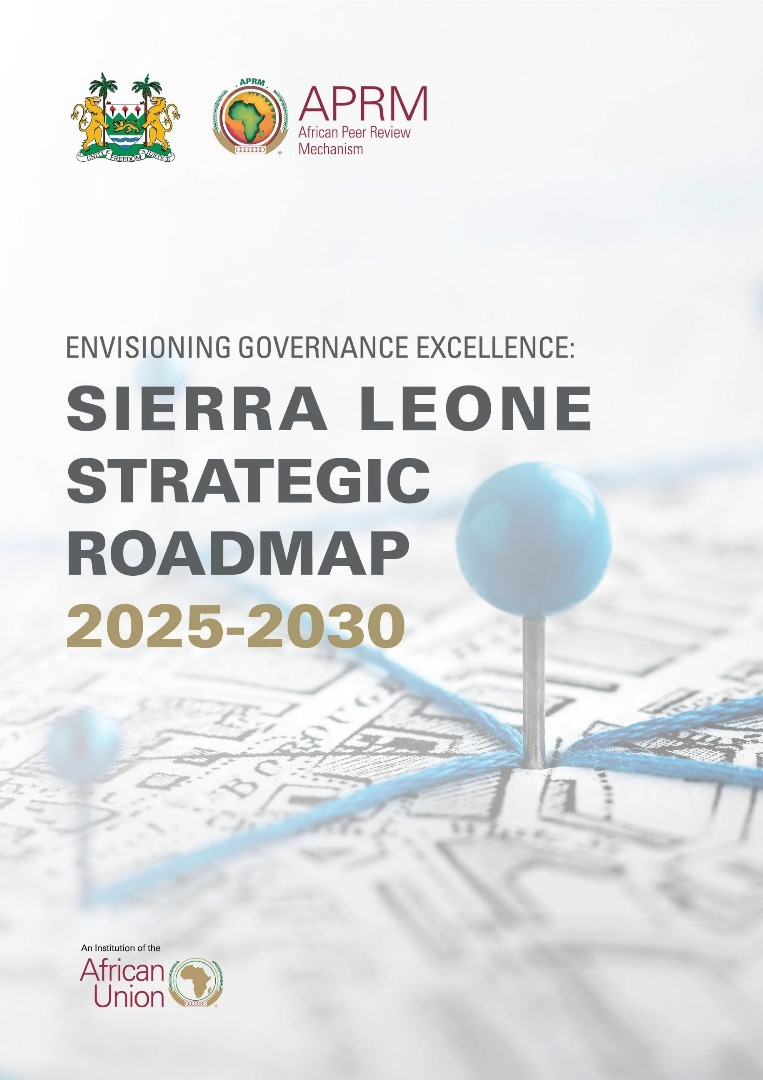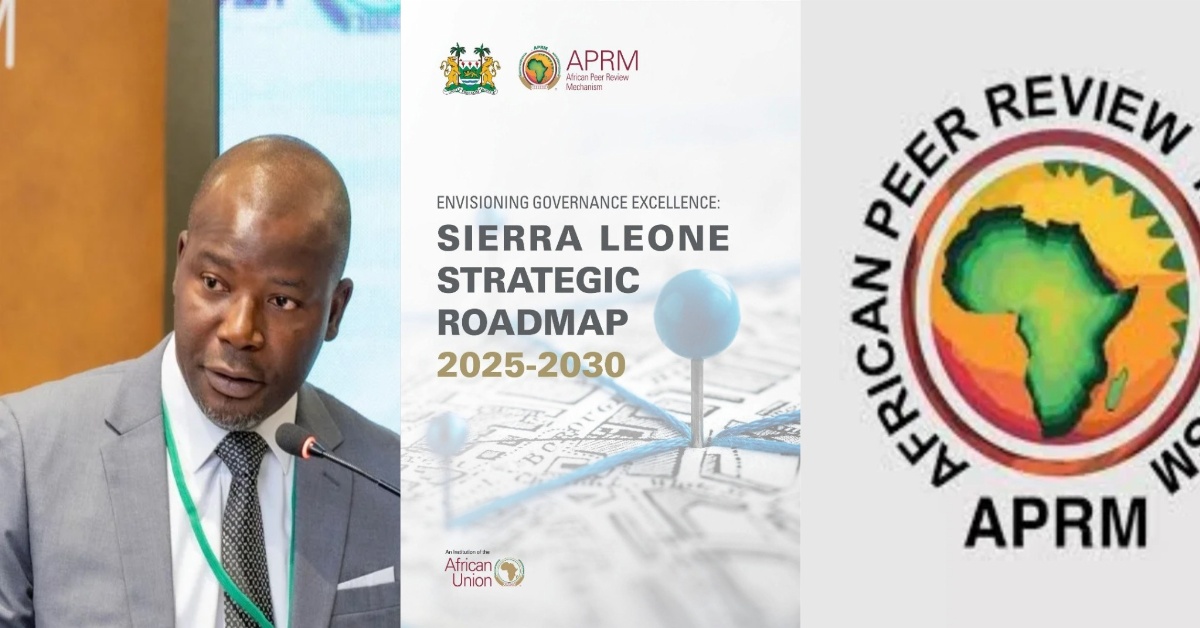In a historic step toward reimagining democratic governance and inclusive development, the African Peer Review Mechanism (APRM) National Secretariat Sierra Leone on April 9 officially launched two landmark initiatives: the “Strengthening Community-Led Governance through Decentralization” project and the APRM Strategic Plan 2025–2030.
Together, these initiatives set the stage for a transformative era where power, responsibility, and hope are shared from the grassroots to the national level.
Held in Freetown, the launch ceremony brought together key government officials, civil society actors, development partners, traditional leaders, and community voices to celebrate a unified vision—one where governance is no longer centralized and distant, but local, participatory, and people-driven.
The Deputy Minister of Local Government and Community Affairs, speaking passionately at the event, described the decentralization project not just as an administrative reform, but as a national movement. “We are not merely launching a project,” he emphasized. “It is part of our ongoing effort to ignite a national movement—a bold and necessary step forward in our governance evolution.”
The initiative, supported by the German Development Agency GIZ, aims to strengthen community-led governance by empowering citizens to shape development priorities, monitor local service delivery, and hold institutions accountable. It is a renewed commitment to fulfilling the promise of the 2004 Local Government Act, which envisioned a system where citizens are active participants in their governance.
In tandem with the decentralization project, the APRM unveiled its first-ever National Secretariat Strategic Plan for 2025–2030. This five-year plan, developed through widespread national consultation, outlines a bold roadmap to advance transparency, accountability, civic engagement, and democratic resilience in Sierra Leone.
Describing the strategy, the Executive Secretary of the APRM Secretariat called it “a manifesto of hope and transformation,” underscoring its alignment with Africa’s Agenda 2063 and the United Nations Sustainable Development Goals (SDGs).
Deputy Minister of Public Administration and Political Affairs, Hon. Philip T. Tondoneh, further echoed this sentiment, stating, “The launch of the APRM Strategic Plan 2025–2030 is a testament to Sierra Leone’s unwavering commitment to the APRM Mechanism. It is our solemn vow to the people of Sierra Leone that we will pursue the highest standards of governance and public service with integrity, urgency, and resolve.”
From grassroots organizations to youth and women’s groups, the response to both initiatives has been overwhelmingly positive. Civil society leaders hailed the twin initiatives as timely and vital for deepening democracy, enhancing local accountability, and ensuring that development decisions reflect the real needs of citizens.
“This is the future we’ve been advocating for,” said Hawa Bangura, a youth leader from Port Loko. “For far too long, decisions have been made without us. Now we have a seat at the table—and a voice that matters.”
Traditional leaders and local government officials also expressed optimism that the decentralization project would revitalize local councils and help restore public confidence in governance.
Sierra Leone’s bold steps come at a time when the African Peer Review Mechanism is encouraging member states to embrace self-assessment, mutual learning, and reform. By placing citizens at the heart of governance, Sierra Leone is positioning itself as a leader in people-centered development on the continent.
“These initiatives are not just about policy—they’re about power,” noted an APRM governance expert. “They signal a shift toward recognizing that national progress must begin where people live, struggle, and hope—in their communities.”
As the country looks to the future, the APRM and its partners are calling on all stakeholders—including the private sector, international donors, and citizens—to rally behind this vision. Sustaining the momentum will require shared commitment, coordinated action, and continued listening to the voices that matter most: the people.
With bold reforms now underway, Sierra Leone is not only decentralizing governance—it is democratizing progress. And from every village, ward, and chiefdom, a message rings clear: the future of Sierra Leone will be shaped not from the top, but from the people.












